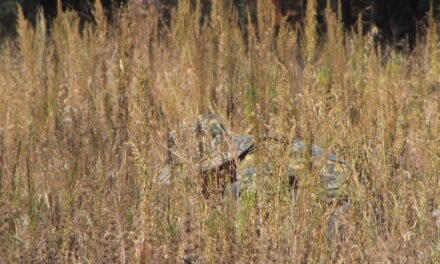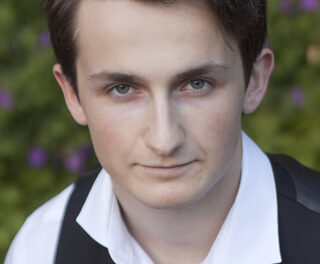Labor Day weekend customarily marks the start of the fall concert season, thanks to Pops in the Park and various other events, most of which are free. Some presenters have been getting a jump on things by mounting concerts ahead of the last holiday gasp of summer – there was a chamber music concert at Meredith on 8/30 and a recital at UNC on 9/2 (that featured a Meredith-based artist as accompanist). On September 4, Duke presented a delightful Nelson Music Room program involving Ciompi Quartet cellist Fred Raimi and pianist Jane Hawkins (Mrs. Raimi, in real life). On its heels, at the other end of the East Campus quad, the Duke Symphony Orchestra performed a pops concert. And Pops in the Park (which began its long run in Pullen Park…), led by NCS Conductor Laureate Gerhardt Zimmermann, was heard in Cary that evening (and will live again, thanks to the miracle of video tape and digital editing, when UNC-TV airs an hour’s worth of it on 9/19 – see our calendar for details).
The Raimi-Hawkins show was billed as “The Complete Works of Frédéric Chopin” – with a footnote reading “for cello and piano.” Advance PR apparently led at least one commercial paper to tout this as a “marathon” concert, but CVNC readers will surely know that there are only a handful of chamber works by this master of small-form piano music – there’s a wonderful piano trio, a cello sonata, and two other short pieces for cello and piano plus, maybe…, a set of variations on Rossini’s “Non più mesta,” for flute and piano. The duo offered two of these works – the Sonata in g minor. Op. 65 (B.160), and the Introduction and Polonaise in C, Op. 3 (B.52 & 41). It would have been more “complete” if they’d also done the Grand Duo, in E, on Themes from Meyerbeer’s Robert le Diable (B.70). Next time? As it was, the two Chopin pieces consumed only half the program, so Raimi began with Ned Rorem’s extraordinary Suite, “After Reading Shakespeare” (1979), inspired by six plays and three sonnets and first performed by Raimi’s CQ predecessor Sharon Robinson. Listeners whose knowledge of Rorem stems primarily from his songs were surely astonished by the awesome range of emotion and drama these nine pieces conveyed – and the often-daunting technical demands. The opener – inspired by King Lear – is as gripping as Shostakovich in a dark and manic mood. The third section – from MSND – juxtaposes with considerable effectiveness the two characters of Titania and Oberon, and the fourth – from The Tempest – brings effective tone painting of Caliban’s words about toads and creepy-crawlies. The grand finale – Othello – is at once suitably theatrical and introspective, too. Other sections serve in large measure as interludes, lessening tension to various degrees before the following parts ratchet it back up again. Raimi made a convincing case for the music, which it would be good to hear again before too long.
A short interval (as opposed to a formal intermission) allowed for a stretch before the wonderful Chopin Sonata, which some fans of the composer are convinced contains one of his most inspired and inspiring slow movements. (One area cellist in attendance – the place was crawling with cellists! – told us the largo works well for both weddings and funerals.)
Balance with the piano was consistently excellent – these artists are true partners – and the performance was a fine one; some minor issues with intonation did not mar the overall effect. Raimi’s new cello sounded more radiant and distinctive than on previous occasions. The substantial audience responded warmly to the composer’s last large-scale work, grateful no doubt to greet the end of the summer doldrums and see the season start. The last selection – the splendid early Introduction and Polonaise – could well have been an encore and in effect served as one, bringing rapturous applause and obliging the artists to return to the platform several times before they were allowed to retreat.
Given the concert’s title, it was somewhat surprising to encounter program notes – by Raimi – that were devoted largely to the Rorem Suite; two sentences sufficed for the Chopin!
Duke offers a vast range of performances this fall, and many of them are free. See our calendar for details and listen, enjoy, and support live music!












